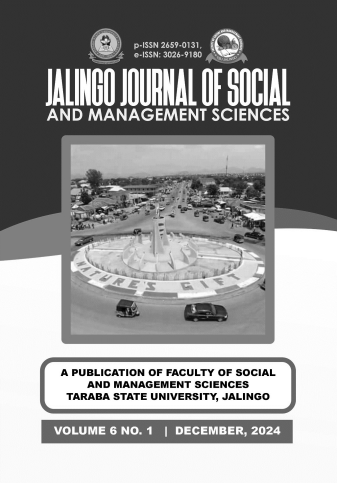Impact of Rural Banditry on Food Security in Taraba State, Nigeria
Keywords:
Banditry, Rural Banditry, Food Security, Human Security Theory, Taraba State, NigeriaAbstract
This study investigates the impact of rural banditry on food security in Taraba State, Nigeria. The aim of the study is to assess the impact of rural banditry on agricultural productivity and food security in Taraba State and analyze the Socioeconomic and Psychological Consequences of Rural banditry on livelihoods and social cohesion in farming communities. Mixed-method approach was employed while both primary and secondary data were collected. Qualitative data, including interviews and personal observation highlighted the psychological and social impacts on farming communities such as Takum, Donga, and Wukari, Bali, Gasol and Lau revealing significant losses in crops and livestock. Findings also indicated that banditry has led to a substantial decrease in agricultural productivity, forcing many farmers to abandon their fields and migrate to safer areas. This has resulted in reduced food production, increased food prices, and heightened food insecurity. Government initiatives, including the Agricultural Recovery Program, have provided some relief but are deemed insufficient by the affected farmers. The study concluded that comprehensive measures, incorporating enhanced security, economic support, and community resilience programs, are essential to mitigate the adverse effects of rural banditry on food security in Taraba State. This study recommends that there should be a comprehensive strategy to tackle
the various issues raised by rural banditry in order to maintain long-term food security and regional economic stability.

Downloads
Published
Issue
Section
License
Copyright (c) 2024 JALINGO JOURNAL OF SOCIAL AND MANAGEMENT SCIENCES

This work is licensed under a Creative Commons Attribution-NonCommercial 4.0 International License.
